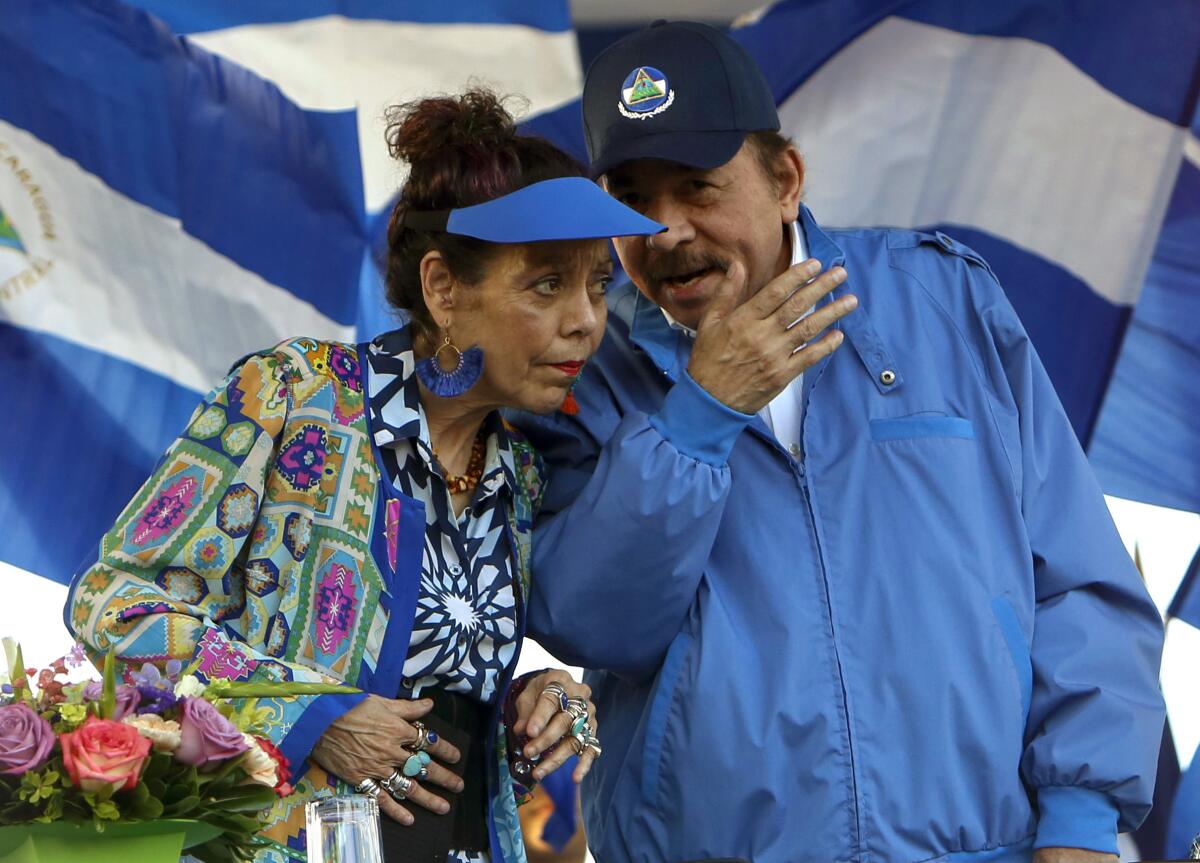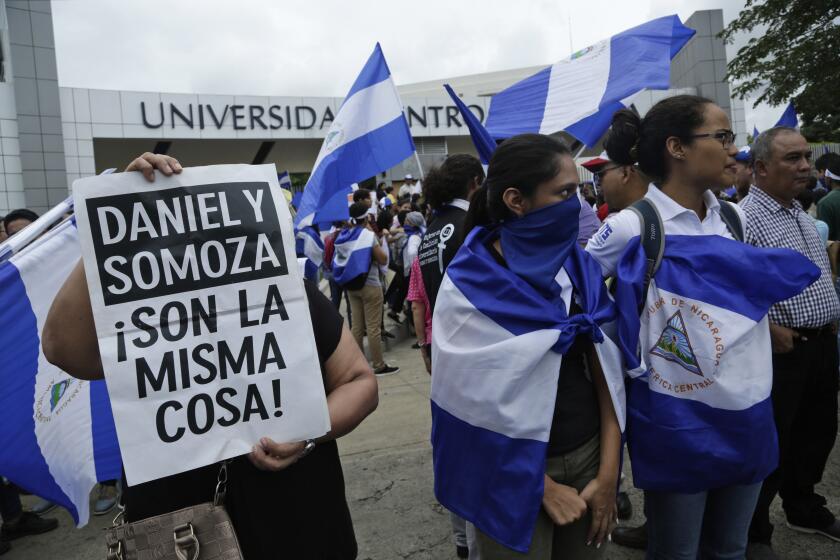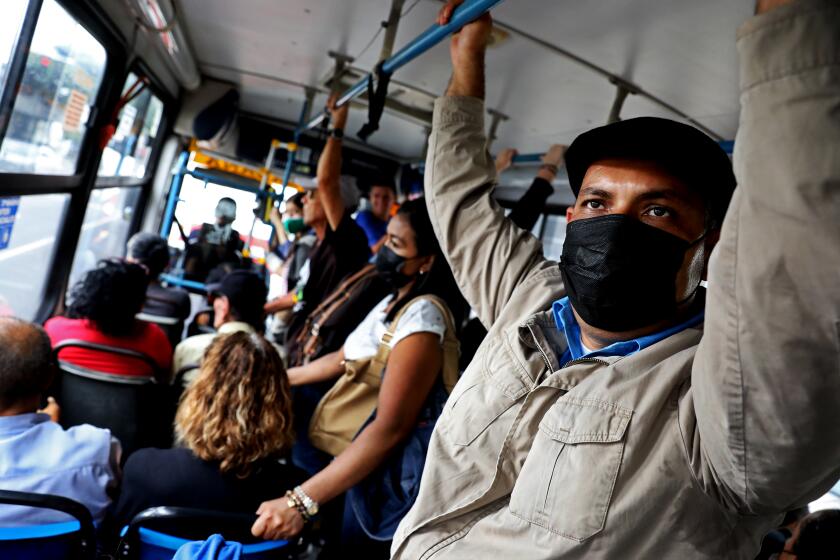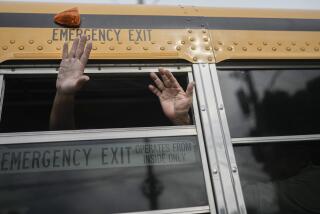Nicaraguan government bans Jesuit order, confiscates all property

MEXICO CITY — Nicaragua’s government on Wednesday declared the Jesuit religious order illegal and ordered the confiscation of all its property.
The move comes one week after the government of President Daniel Ortega confiscated the Jesuit-run University of Central America in Nicaragua, arguing it was a “center of terrorism.”
The confiscation order published Wednesday claimed the Roman Catholic order had failed to comply with tax reporting.
It was the latest in a series of increasingly authoritarian actions by the Nicaraguan government against the Catholic Church and opposition figures. The Jesuit order, known as the Society of Jesus, has condemned the measures.
Nicaragua: President Daniel Ortega’s government confiscates the Jesuit-run University of Central America, one of the region’s most highly regarded colleges.
The University of Central America in Nicaragua was a hub for 2018 protests against the Ortega administration.
After last week’s announcement, the Society of Jesus of Central America said in a statement, “This is a government policy that systematically violates human rights and appears to be aimed at consolidating a totalitarian state.”
Since December 2021, at least 26 Nicaraguan universities have been closed and their assets seized by order of the Ortega government with a similar procedure. Seven of those were foreign institutions.
In April, the Vatican closed its embassy in Nicaragua after the country’s government proposed suspending diplomatic relations.
Two congregations of nuns, including from the Missionaries of Charity order founded by Mother Teresa, were expelled from Nicaragua last year.
The expulsions, closures and confiscations have not targeted just the church. Nicaragua has outlawed or closed more than 3,000 civic groups and non-governmental organizations.
With virtually no independent journalists left inside and foreign reporters banned from entering, Nicaragua has become ‘an information black hole.’
In May, the government ordered the Nicaraguan Red Cross shut down, accusing it of “attacks on peace and stability” during anti-government demonstrations in 2018. The local Red Cross says it just helped treat injured protesters during the protests.
In June, the government confiscated properties belonging to 222 opposition figures who were forced into exile in February after being imprisoned by Ortega’s regime.
Those taken from prison and forced aboard a flight to the United States on Feb. 9 included seven presidential hopefuls barred from running in the 2021 election, lawyers, rights activists, journalists and former members of the Sandinista guerrilla movement.
Thousands have fled into exile since Nicaraguan security forces violently put down mass anti-government protests in 2018. Ortega says the protests were an attempted coup with foreign backing, aiming for his overthrow.
More to Read
Sign up for Essential California
The most important California stories and recommendations in your inbox every morning.
You may occasionally receive promotional content from the Los Angeles Times.












